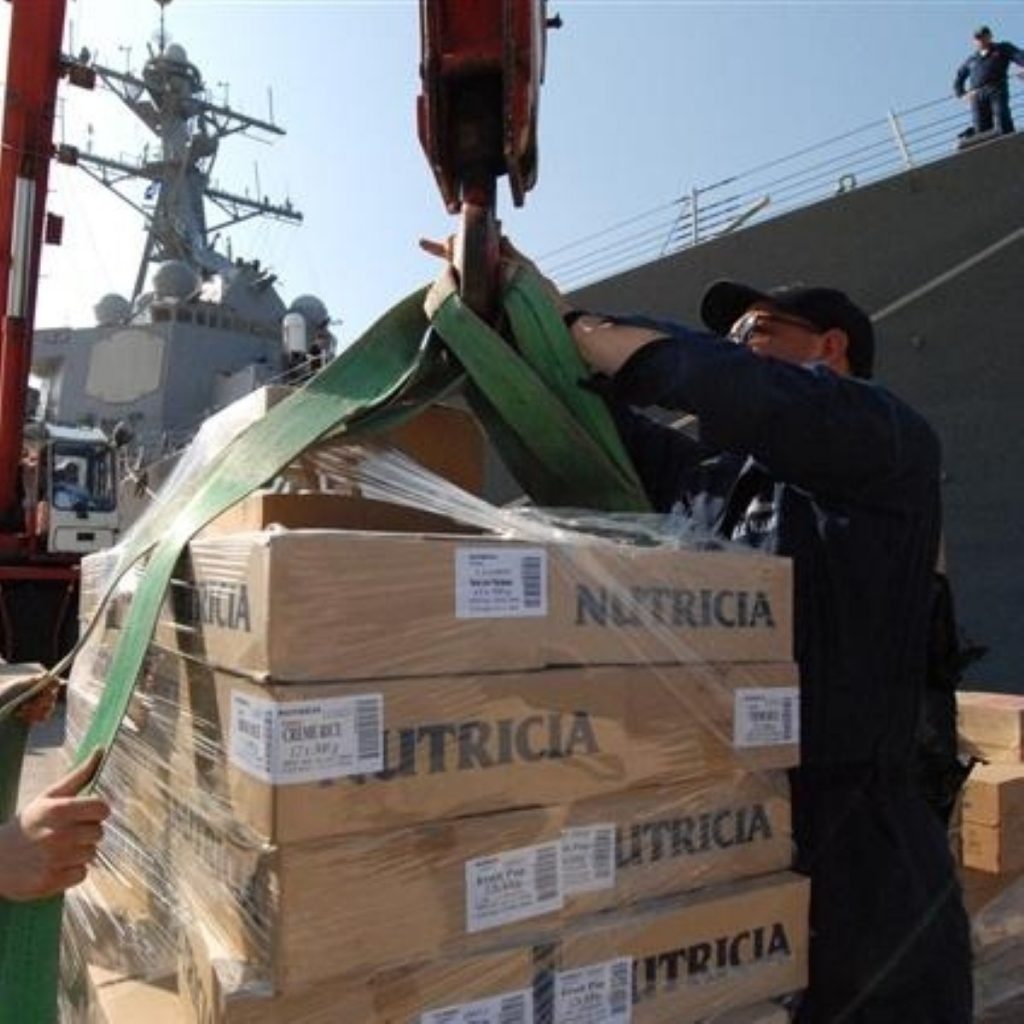Charities horrified as armed forces muscle in on aid budget
Aid agencies are reacting with horror to the prime minister's suggestion parts of the development budget could be redirected to the Ministry of Defence.
David Cameron indicated his enthusiasm for switching aid money to help the MoD cope with supporting humanitarian demands in warzones on the final leg of his tour to India yesterday.
But the proposal has prompted angry reactions from leading charities and development experts, who are warning the blurring of aid and military roles will endanger the lives of their workers.
Cameron appears to have succumbed to pressure from right-wing media outlets to transfer aid money to the MoD, through existing channels like the 'conflict pool' and the national security council, however.


"DFID, the Foreign Office and the defence ministry work incredibly closely together," the prime minister said. "Can they work even more closely together?
"There's the conflict pool, which we already have. Can we do more? Can we build on this approach? I'm very open to ideas like that."
The Department for International Development's growing budget will finally be large enough to cover Britain's commitment to spend 0.7% of gross national income on aid later this year.
While the MoD faces cuts of eight per cent over the current parliament, the DFID budget is increasing by £2.35 billion.
Leading aid charity Oxfam said the government's strong stance in ringfencing international development spending from broader spending cuts would only be meaningful if the money was "spent on schools and not soldiers".
"We should not see a single penny diverted into the military," he said.
"If the government needs to raise more money it should clamp down on tax avoiders rather than make insane choices between the safety of a family and their health and education.
"Aid is a very small proportion of government spending, we think it's great the government is doing it and we think British people expect this to be spent on hospitals and not helicopter gunships."
Cameron appears to be considering using aid money to help the MoD fund peacekeeping operations in wartorn countries like Mali or Afghanistan.
"It is obviously true that if we can help deliver security and help provide stability and help with stabilisation, that is the basis from which all development can proceed," Cameron added.
Christian Aid warned aid workers' lives could be risked by blurring aid and military spending, however.
"The blurring of the lines between military action and aid delivery could mean that aid workers become associated with those forces, meaning they are not only put at risk, but find it hard to gain the trust of the people they are trying to help," the charity said in a statement.
Recent research by the Independent Commission for Aid found the conflict pool was creating some positive outcomes but concluded its strategic effectiveness, ability to monitor results and value for money were all deeply questionable.
"We need to be very careful to avoid blurred objectives," Ashley Jackson, a research fellow at the Overseas Development Institute, warned.
"The military exist for our national security, aid workers work to alleviate poverty. Just because one may benefit from the other doesn't mean that we should be getting them to share their jobs – let professionals stick to what they are best at."
He said the Taliban justified attacks on aid workers because they are seen to be working for the Army, adding: "Providing aid to those who desperately need it is no longer seen as neutral. This is something we need to avoid, not encourage."
Christian Aid added: "We know that conflict is a terrible scourge in our world and disproportionately affects the poorest, and we understand the need for there to be peace and stability in fragile conflict states.
"But life-saving development money should be spent on just that, helping poor communities to build better futures, not on any kind of military intervention."









